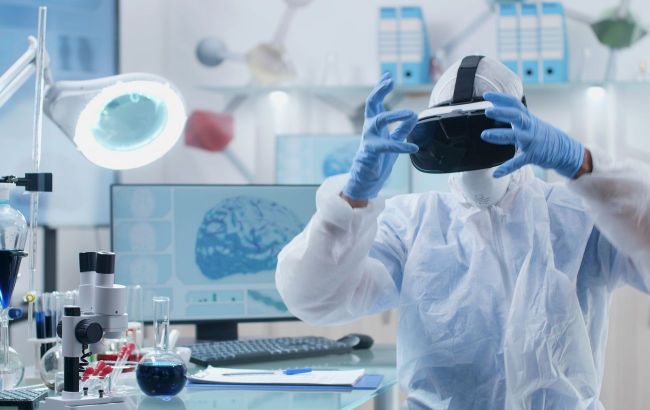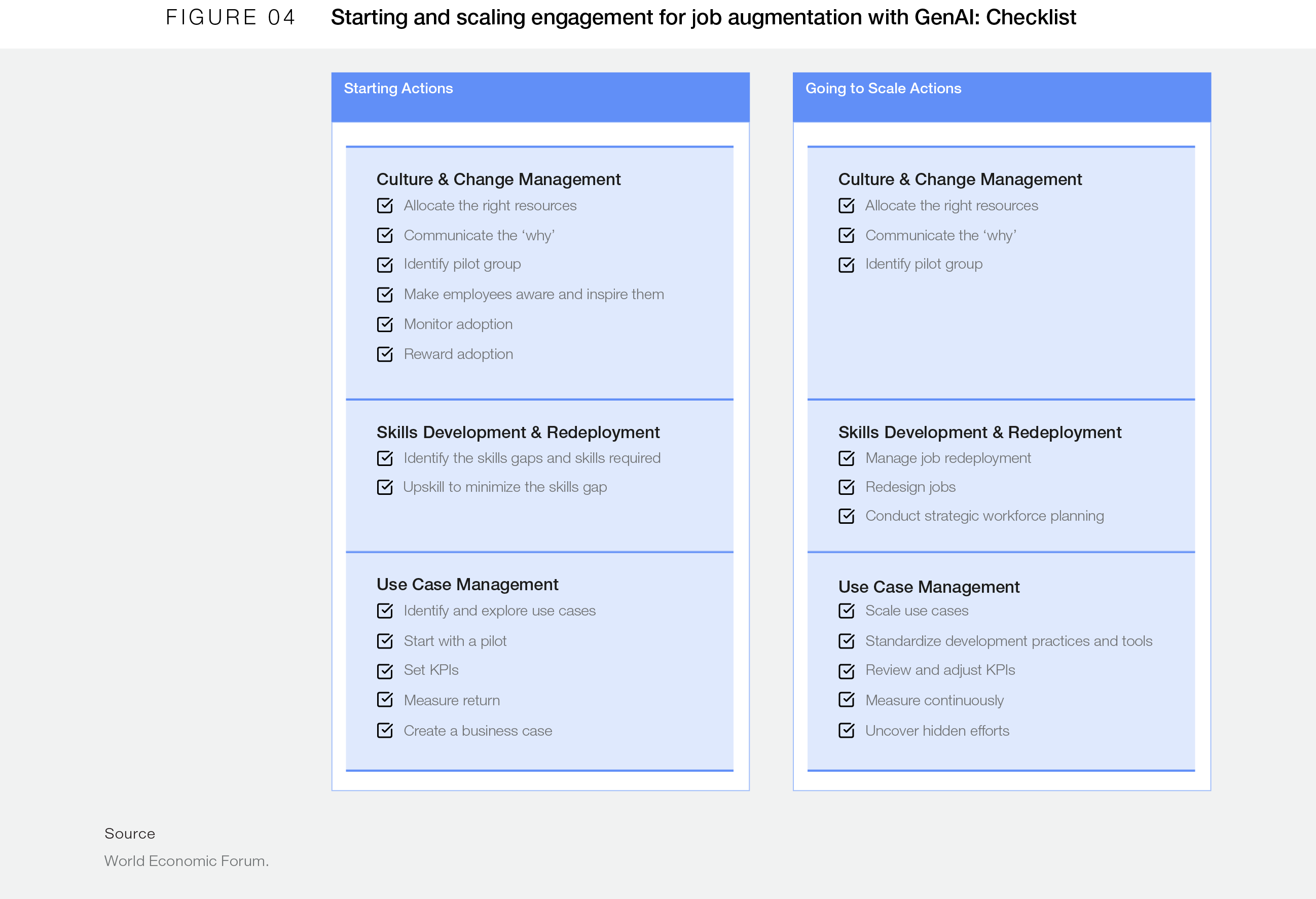How generative AI affects our jobs today
 Ways AI is redefining our workspace (illustrative photo: Freepik)
Ways AI is redefining our workspace (illustrative photo: Freepik)
Generative artificial intelligence (AI) is rapidly changing the work environment, introducing innovations and transforming conventional approaches. However, this process raises questions and concerns: from the ethics of replacing humans to the need for employees to adapt to new technologies.
RBC-Ukraine with reference to the World Economic Forum website takes a look at 10 key ways in which generative AI affects professional activities.
Data-driven organizations best prepared to use Generative AI
Companies that are the fastest to adopt Generative AI (GenAI) are usually data-driven. According to the report, such organizations already have a high level of data quality, developed infrastructure, and reliable information management and protection. This allows them to quickly implement new technologies, even if the process of finding specific GenAI applications takes longer.
Companies cautiously scaling up GenAI
Many companies that have started experimenting with GenAI are moving to a larger-scale implementation. They emphasize the importance of a gradual process: first, solutions are tested on small groups of employees, which allows them to identify problems at early stages. This approach prevents employees from losing interest if the technology does not work as planned.
Risk awareness remains high
Most organizations are aware of the potential risks of using GenAI, such as data leakage, privacy violations, and ethical issues, including biased results. To minimize reputational risks and avoid problems with regulators, companies conduct tests and pilots in a secure internal environment.
GenAI improves productivity, but companies don't always know how to use time they have freed up
While it is difficult to estimate the overall macroeconomic impact of productivity gains, many companies have seen significant improvements at the organizational level. For example, tasks that used to take weeks to complete can now be completed in minutes thanks to automation.
More than a quarter of respondents noted that GenAI allows employees to engage in more creative and meaningful work. However, some companies do not yet have a clear plan on how to allocate the freed-up time of employees.
Improving quality of work is another important incentive for implementing GenAI
In addition to increasing productivity, companies consider it important to improve the quality of work. If implemented correctly, GenAI provides greater accuracy, consistency, and minimization of errors, which contributes to increased customer satisfaction.
People do not always trust results of using technology
Employees express concerns about the accuracy, potential for bias, and ethics of replacing human labor with Generative AI (GenAI). IT professionals are adopting the new technology particularly quickly, but administrative departments are feeling the greatest impact, as they are concerned about the future of their employees.
To build trust, companies need to provide training that helps them understand the technology, as well as offer retraining and upskilling programs. This becomes especially important in the context of upcoming changes: according to the World Economic Forum initiative, the skills of 44 percent of workers will be transformed within five years.
 Checklist for employee engagement when deploying GenAI in organizations (The World Economic Forum)
Checklist for employee engagement when deploying GenAI in organizations (The World Economic Forum)
Implementing GenAI is impossible without change management
For a successful GenAI implementation, it is important to consider the impact on corporate culture and the change in employee mindset. The report emphasizes that organizational leaders, especially those in senior positions, play a key role in this process. Equally important are middle managers, who have the best understanding of work processes and can identify areas where GenAI will be most effective.
Most organizations do not know how many employees use GenAI
According to the interviews, the level of GenAI usage varies from 20 to 80 percent of employees. Some companies have provided access to all GenAI tools to all employees, while others restrict use to certain departments or require pre-approval of licenses. The approach depends on the organization's risk appetite.
Few companies have strategy for sustainable use of AI
Large language models such as ChatGPT require significant computing resources and consume a lot of energy. Although many companies recognize this problem, only a few have developed strategies to reduce the negative impact on the environment. Environmental aspects are not yet central to decision-making on the implementation of GenAI.
Excluding humans from process is still considered a mistake
Companies monitor the risks, quality, and responsible use of GenAI through internal committees or boards that set rules and evaluate specific use cases.
With the scandals surrounding discriminatory algorithms and incoming legislation such as the European Union's Artificial Intelligence Act, organizations understand the importance of verification and human intervention.
Read also what changes await creative professions with the development of AI.

